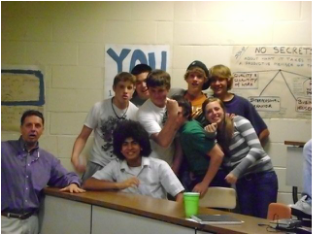 While schools throughout the US are creating emotional literacy programs many are failing their mission to strengthen their students’ Emotional Intelligence (EI) skills. Having worked with and observed hundreds of teachers over two decades I have concluded it is because of two reasons - the fear to pause, and the discomfort with silence. While pausing and silence are amongst the 66 strategies Travis Bradley and Jean Greaves share in their book Emotional Intelligence 2.0, we have developed a cultural and educational aversion to pausing and being silent. According to Dr Travis Bradley Emotional Intelligence (EI) is the greatest predictor of performance. After testing more than 500,000 people he concludes EI contributes more to successful performance than IQ, education, experience, knowledge, good organizational skills or even luck and good looks combined. In fact he estimates EI skills attribute a whopping 58% to your performance at work or school! So what is EI? Dr Jean Greaves (co-author of Emotional Intelligence 2.0) divides EI into four skills and two competencies that identify and manage emotions personally and socially. She also declares only 36% of people interviewed could identify their own emotions as they are happening. After seventeen years teaching math in the classroom I have observed myself and others buy into the idea that fast answers are more convenient. A fast answer fits the instant gratification mindset so pervasive in today’s world. Kids have become masters at producing results without thinking. Students can forecast the answer the teacher wants from the tone of voice, body language or teacher’s location in the classroom. Jeopardy style answers are rewarded because think time (sometimes called wait time) takes too long and requires pausing and silence. (See my blog Wait Time: A Teacher’s Secret Weapon) Neglecting pause and silence have resulted in school landscapes dominated by noise, impatience and haste. The goal of understanding concepts has been replaced by covering content. Teachers are anxious as they race to keep up with unrealistic pacing guides. Students are bored as they struggle to get the right grade rather than think and master concepts. Schools are arguably two dimensional learning institutions where success is overly-measured by standardized tests. In my experience students feel unsafe to think because there is no time to think. In other words the reasoning and thinking function of the brain is consistently being hijacked by the brain’s emotional center - the limbic system. We are hardwired to feel before we think in order to survive. It takes pausing and introspection to over ride the fight and flight response. If we cannot pause, reflect and understand our emotional experience we will not be able to effectively manage the reactions that arise. on the other hand those who are in touch with their emotions can make more constructive and creative choices. What is the way forward? Is it possible to transform the school scape to a safe haven for higher order thinking? One of the most effective ways to cultivate pausing and silence in the classroom is through meditation or mindfulness techniques. Meditation creates a space in the classroom where students have time to take emotional stock, develop metacognition skills and invoke their parasympathetic nervous system for clearer thinking. If you have been considering adding meditation or mindfulness to your pedagogical tool box there has never been a greater need for it. For more information read my Oxford Round Table paper The Phenomenology of Silence: Educing Learning and Creativity in the Classroom. Please share your classroom EI strategies on my comments section below. If you have questions or would like further information write me today. I would love to hear from you. Free to share this article with others. Be well. Lawrence
0 Comments
Your comment will be posted after it is approved.
Leave a Reply. |
Archives
September 2016
Testimonial: |
LAWRENCE CARROLL EDUCATIONAL CONSULTANT & LIFE COACH
|
About Lawrence Carroll
Bio Writings Testimonials Contact Location: Berkshire County MA Call (413) 212 2030 |
"Lawrence Carroll's workshop on personal stress management, which he conducted with my Columbia Grad School class
was a huge success." Neal Pilson, Columbia University, Former President, CBS Sports |

 RSS Feed
RSS Feed